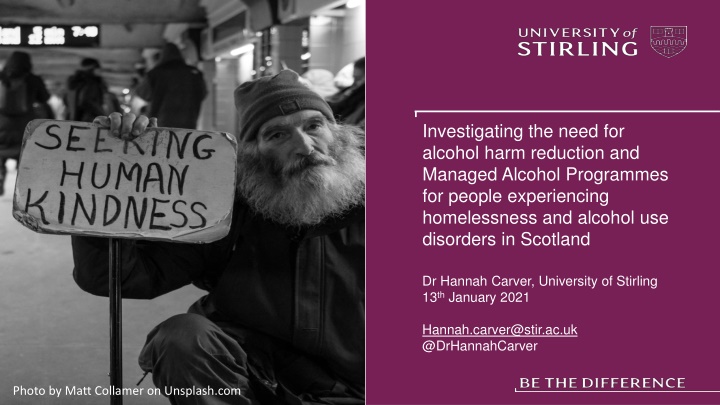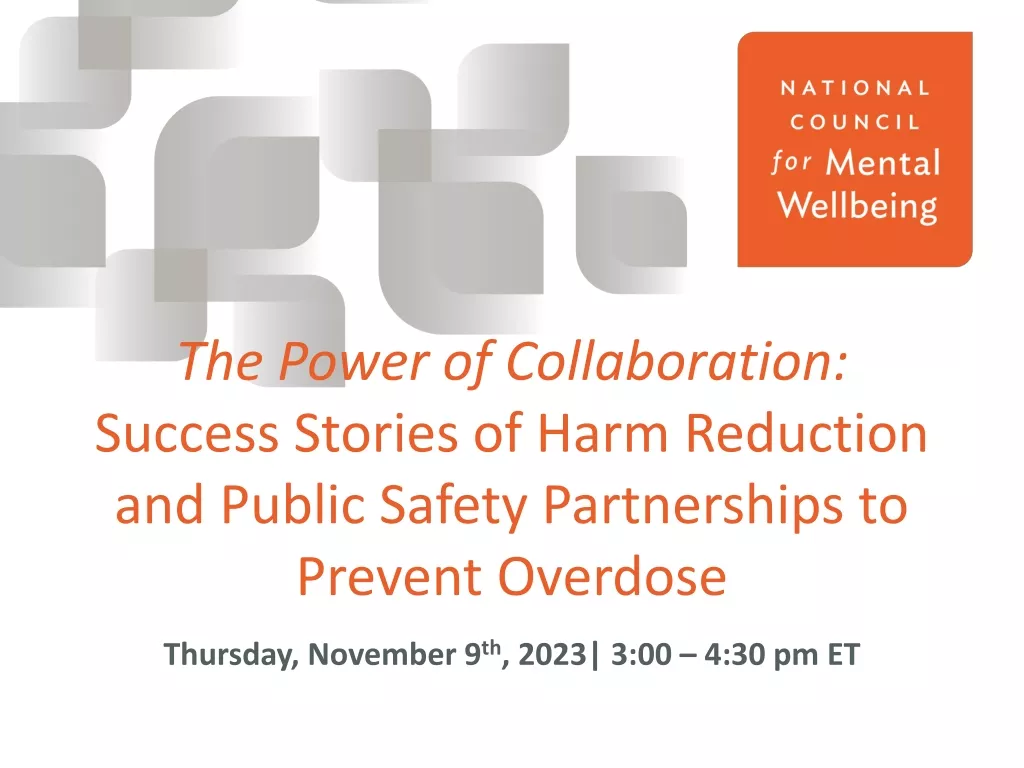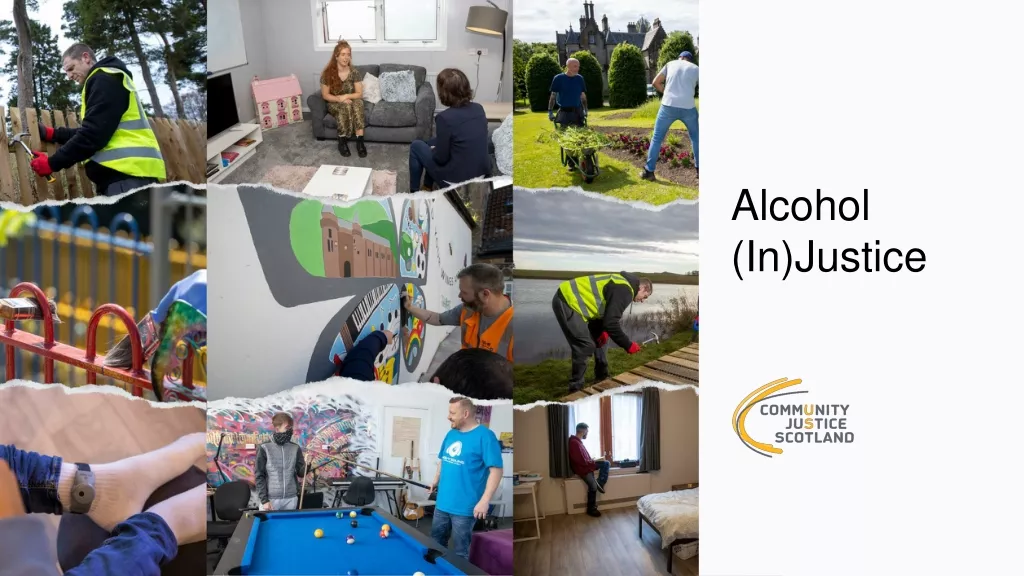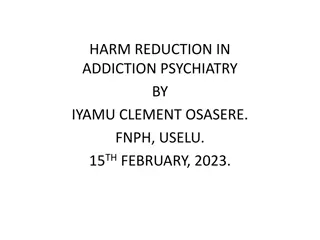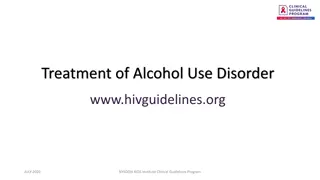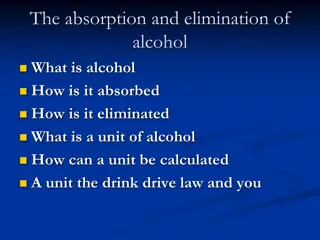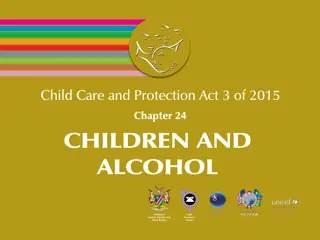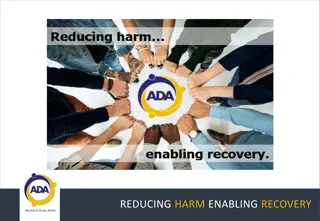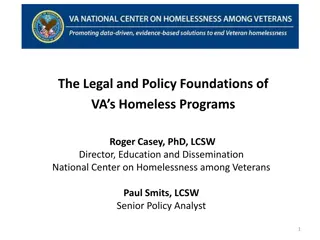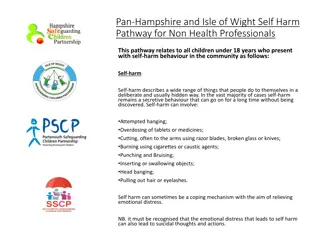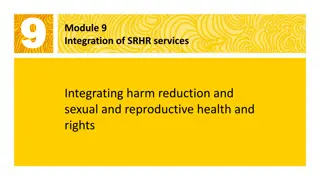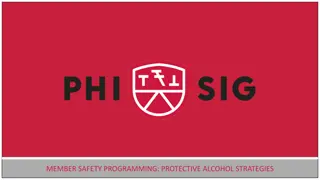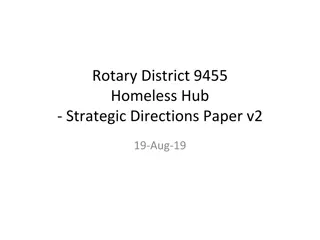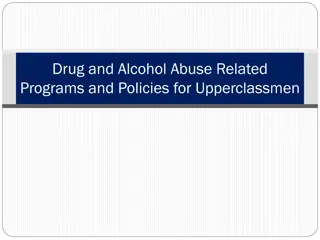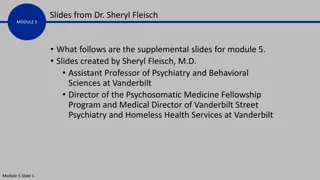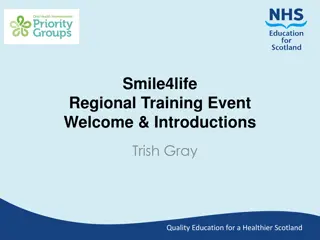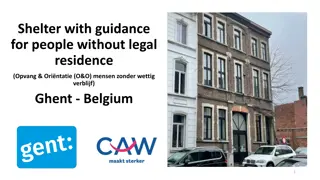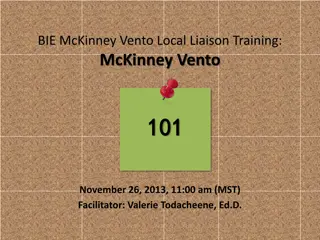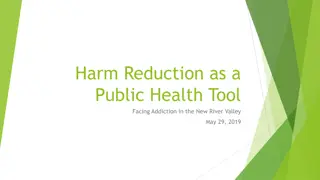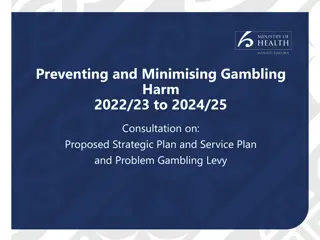Alcohol Harm Reduction for Homeless Individuals in Scotland
Investigating the need for alcohol harm reduction and Managed Alcohol Programmes (MAPs) for people experiencing homelessness and alcohol use disorders in Scotland. The study aims to assess feasibility, attitudes, and potential beneficiary views on MAPs, with a focus on tailoring these programs to the Scottish and UK context.
Download Presentation

Please find below an Image/Link to download the presentation.
The content on the website is provided AS IS for your information and personal use only. It may not be sold, licensed, or shared on other websites without obtaining consent from the author.If you encounter any issues during the download, it is possible that the publisher has removed the file from their server.
You are allowed to download the files provided on this website for personal or commercial use, subject to the condition that they are used lawfully. All files are the property of their respective owners.
The content on the website is provided AS IS for your information and personal use only. It may not be sold, licensed, or shared on other websites without obtaining consent from the author.
E N D
Presentation Transcript
Investigating the need for alcohol harm reduction and Managed Alcohol Programmes for people experiencing homelessness and alcohol use disorders in Scotland Dr Hannah Carver, University of Stirling 13thJanuary 2021 Hannah.carver@stir.ac.uk @DrHannahCarver Photo by Matt Collamer on Unsplash.com Photo by Matt Collamer on Unsplash.com
Funding: Chief Scientist Office (CSO) Catalytic Grant 2019 Ethical approval: University of Stirling General University Ethics Panel (GUEP, 695); Salvation Army Research Ethics Committee; Turning Point Scotland
The team Principal Investigator Dr Tessa Parkes (University of Stirling) Co-investigators Dr Hannah Carver (University of Stirling) Professor Catriona Matheson (University of Stirling) Professor Bernie Pauly (University of Victoria, Canada) Research Assistant Tania Browne (University of Stirling)
Photo by Tessa Parkes Photo by The Guardian
The study Aim: to scope the feasibility and acceptability of provision of a MAP within a third sector supported accommodation environment in order to begin the process of tailoring MAPs to the Scottish and UK context. Objectives: 1.To scope the target eligible population in Scotland, assessing the number of people who would benefit from MAPs, prevalence and characteristics; 2.To scope the attitudes of third sector staff/senior managers, commissioners and strategic decision makers towards MAPs; 3.To scope potential beneficiary views on the value of MAPs, ascertaining views on key delivery elements.
Methods Case note review (n=33) Salvation Army (n=7) and Turning Point Scotland services (n=2) Data from case notes age; gender; housing status; alcohol use; treatment experiences; other substance use; hospital admissions; physical and mental health problems; cognitive problems Entered into spreadsheet and analysed in SPSS using descriptive statistics Interviews Strategic level informants (n=12) Staff in third sector organisations (n=8) Potential beneficiaries (n=9) Explored current situation of alcohol use and needs of target population; availability of services; perceptions of MAPs Use of three vignettes to explore different approaches to MAPs (residential, drop-in and co-op models) Audio recorded, transcribed in full and analysed using Framework Methodin NVivo
Findings case note review Majority (73%) male, aged 30-49 years (79%); 54% reported physical health problems; 97% reported mental health problems; 79% used alcohol everyday, with units per day ranging from less than 10 to more than 100; Wine and spirits were the most commonly consumed types of alcohol; 75% reported daily withdrawal symptoms and 45% reported weekly seizures; Most had previous experiences of AUD treatment/detox and alcohol related hospital admissions; 30% had alcohol-related cognitive impairments; 58% used drugs as well as alcohol
Findings - interviews Three key themes: 1. The need for MAPs in Scotland 2. Eligibility 3. Challenges of MAPs due to polysubstance use
The need for MAPs in Scotland So many times people would say to me, you know, you ve got to stop drinking and that s it. But then it was actually worse for me to actually just stop drinking because then I would go into a fit, my shaking was ridiculous it would just make you feel even worse. That wasn t you know beneficial for me I don t think (Potential beneficiary 4, Third sector homeless organisation B). Photo by Tessa Parkes Photo by Bernie Pauly
Eligibility A lot of the people that might fall under the category of a managed alcohol programme presumably are the most disengaged, who have tried, they have probably ping-ponged back and forward between all sorts of services and they have a real dependency on alcohol (Strategic participant 1, Government). Photo by Tessa Parkes Photo by Bernie Pauly
The challenges of MAPs due to polysubstance use In our own service in particular the majority of service users are alcohol dependent. But what we have seen is a massive rise now of polydrug use, so folk who would normally have been your classic drinker are also using things like street Valium etc But, as I say, alcohol is still the number one drug of choice in our homeless service. (Staff participant 6, Third sector homeless organisation B). Photo by Tessa Parkes Photo by Bernie Pauly
Conclusions Those in the target population have high rates of alcohol use and associated physical and mental health problems; Participants were generally supportive of MAPs in Scotland, with recognition that those experiencing homelessness and problem alcohol use require innovative, harm reduction approaches; MAPs would be valuable for those who had exhausted other treatment options and were in need of alternative approaches. High rates of both alcohol and drug use among this group was viewed as a particular current concern in Scotland that needed to be considered when developing services.
Acknowledgements Research Advisory Group: Professor Carol Emslie (Glasgow Caledonian University); Alex Dunedin (Drugs Research Network Scotland); Dr John Budd (NHS Lothian); Dr Iain Smith (NHS Forth Valley) Partners: The Salvation Army and Turning Point Scotland Participants: Strategic level, staff and potential beneficiaries
MAPs during COVID-19 CSO funded study to explore the potential of MAPs to reduce risks of infection/transmission of COVID-19 for people who experience homelessness and severe alcohol problems; Mixed methods study, involving: Case note review (n=12) Semi-structured interviews with stakeholders (n=19), Salvation Army managers (n=8), frontline staff (n=7) and clients (n=6) Meeting notes and training data Creation of paintings to capture key themes Study team: Dr Tessa Parkes (PI); Dr Hannah Carver (Deputy-PI); Professor Catriona Matheson; Professor Bernie Pauly; Dr Peter McCulloch; Wendy Masterton; Hazel Booth; Tania Browne; Josh Dumbrell.
